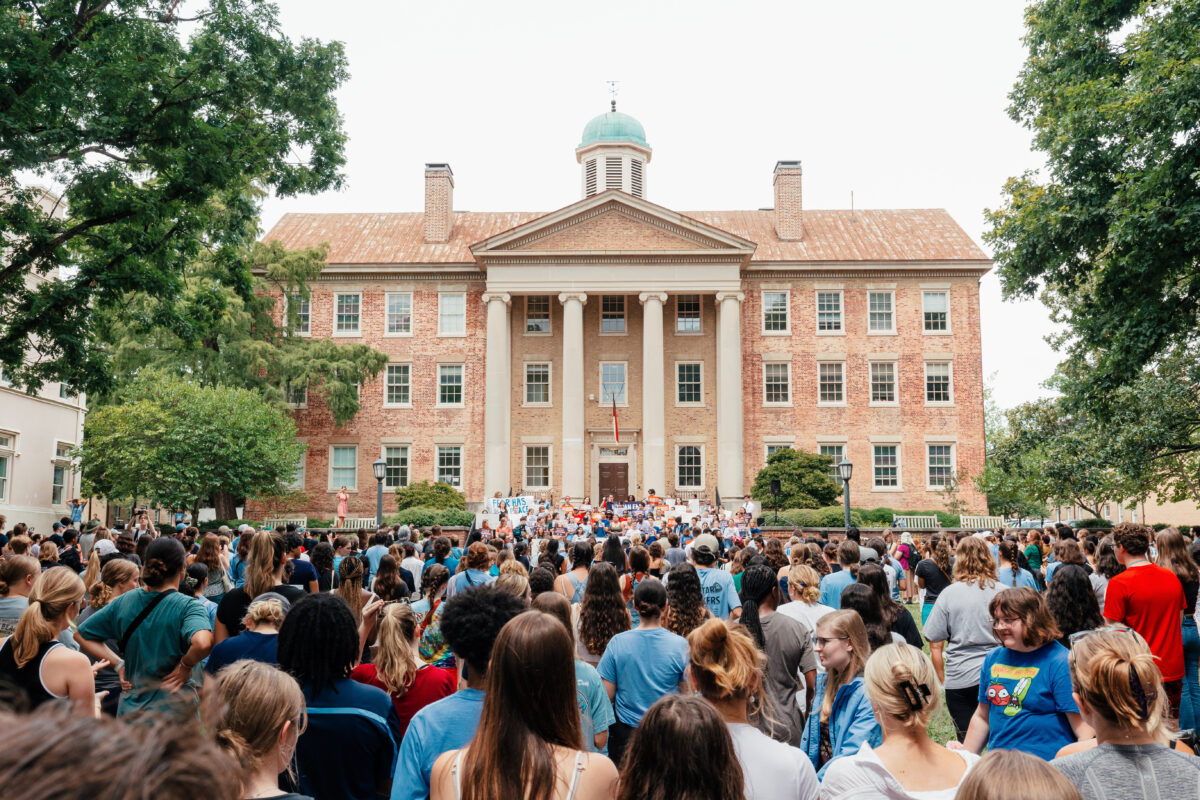- Blog
Kate and Will Ranta's Story: A Personal Plea to the Supreme Court on Gun Safety
Share
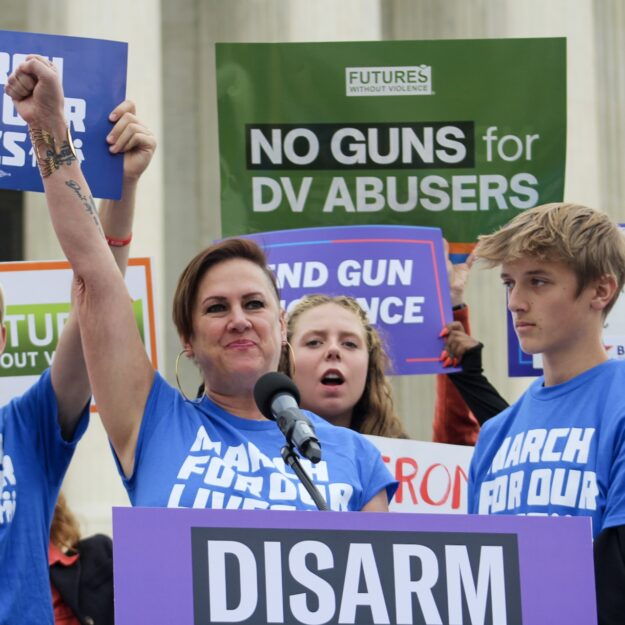
Any day now, the US Supreme Court will make its landmark decision in United States v. Rahimi. This case threatens a federal statute that even some pro-gun groups recognize as essential: prohibiting those under domestic violence protection orders from owning guns. With a pound of a gavel, SCOTUS could place countless Americans in the line of fire. This decision could quite literally determine if those facing domestic violence become survivors or victims.
While many courtrooms are overfilled with legalese and theoretical discussions, our amicus briefs aim to ensure that each and every justice knows what’s at stake with their decision. That’s why our Judicial Advocacy Team (JAT) brings survivors’ stories to the surface through amicus briefs—to show that human lives are on the line. In Rahimi, we shared the stories of seven gun violence survivors, including Kate and Will Ranta’s story.
Kate and Will Ranta’s Story
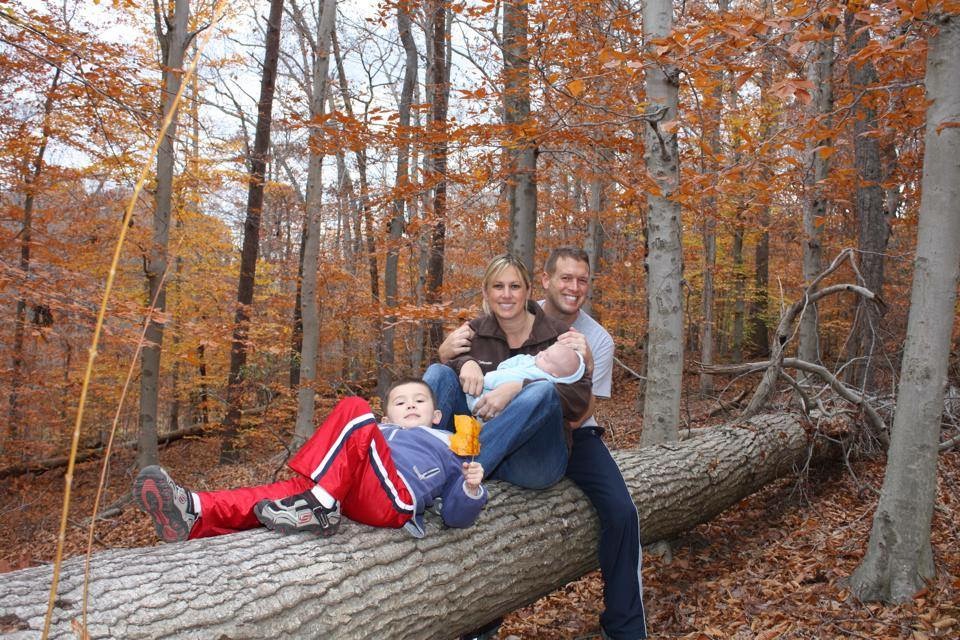
In 2007, Kate Ranta, a single mother living in Washington, D.C., met Tom, an Air Force officer. Tom was charming, successful, and seemingly devoted to Kate. Their relationship moved swiftly: they moved in together within three months and got married three months later, and in 2008, Kate gave birth to their son, Will.
But the honeymoon period was short-lived. When Will was just three months old, Tom picked a fight with Kate and tried to take Will away, threatening to call military police to have her jailed if she resisted.
Warning Shot
The family relocated to Parkland, Florida, where Tom’s behavior grew increasingly erratic. Fueled by a growing addiction to painkillers and Ambien, his jealousy and controlling nature intensified. In 2011, a casual Facebook comment from an old high school friend sent Tom into a rage. He got drunk, locked Kate out of their bedroom, and chambered a round in one of his guns. Terrified, Kate ran from the house, hoping to find help—or at least a witness if he were to shoot—and called the police.
Meanwhile, Tom walked out with two-year-old Will, got into his car, and drove off. Scared for Will’s safety, Kate jumped into the car to save her son but instead found herself in danger. He raised his fist and threatened to punch her and eventually forced Kate out of the car, refusing to let her take Will back. When Kate returned home, she found Tom talking to the police. One officer pulled her aside and advised her to get a restraining order.
The next morning, Kate and her father went to the courthouse to do just that. The process was long and daunting, but by that afternoon, a judge granted a temporary order. Police confiscated Tom’s firearms, for fear he might use them to hurt Kate or Will, revealing an alarming arsenal of shotguns and handguns. While some were secured, others were left accessible to their two-year-old son. Although law enforcement removed Tom’s guns, “He could go out the next day and legally buy another gun—which was exactly what he did,” Kate said. “He bought a 9mm Beretta, the one he later used to try to murder us.”
Despite the restraining order, Tom found a way back into their lives by manipulating Kate’s financial situation. His behavior escalated, endangering a sick young Will with unprescribed medication that sent him to the hospital. Child Protective Services got involved, warning Kate that getting back together with Tom would mean losing her son. After filing for divorce and moving to Coral Springs, Florida, Kate thought she had finally escaped—but the worst was yet to come.
“Don’t Do It, Daddy! Don’t Shoot Mommy.”
On November 2nd, 2012, Kate walked outside with four-year-old Will to find her tire slashed. Kate knew right then that Tom had found her. She called her father and the police. As her father went to leave, he spotted Tom. Kate dialed 911 while she and her father barricaded the door. Suddenly, three shots rang out. Tom had fired through the door, which she believes hit her in the breast. Tom burst in, shooting Kate again through her hand and her father at point-blank range. Kate, bleeding and desperate, crawled under the kitchen table. Tom pointed his gun at her, the red laser dot illuminating her face. Will pleaded, “Don’t do it, Daddy! Don’t shoot Mommy.”
Tom relented and Kate stumbled outside, collapsing in the grass. Police, reluctant to enter while Tom was armed, watched as Kate bled out, breathing what could have been her last breaths. Her father, wounded but alive, carried Will out. Each believing the other to be dead, Kate and her father locked eyes in relief that they somehow survived.
Kate was airlifted to a hospital, fearing that she wouldn’t make it. Both she and her father underwent surgery and months of excruciating recovery. While Kate nearly fully recovered, her father’s arm remains permanently damaged. Will, though physically unharmed, still struggles with the memories of that night. All three are diagnosed with complex PTSD, battling with the intense trauma of the ambush.
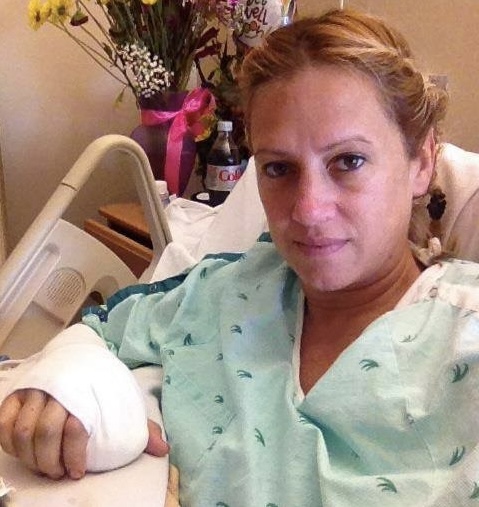
From Survivors to Advocates
Following the near-deadly shooting, Kate chose to relocate herself and Will to Massachusetts—a state known for its gun safety—seeking refuge from the terror firearms had inflicted on her family. From her hospital bed in 2012, she vowed to speak out, believing in strict gun laws to prevent abusers from owning deadly weapons. So, over the past decade, Kate has become an outspoken advocate for domestic violence survivors.
On November 7th, 2023, just over 11 years after they escaped death, Kate and Will stood at the steps of the US Supreme Court, recounting their harrowing tale. That day, the Justices began hearing arguments on Rahimi, the case that threatens to leave more families like their own in the crossfire by making it illegal to pass laws that prevent abusers from doing what Tom did—going out to purchase firearms while under protective orders. It was the first time Will, now 15, shared his story at a large rally. Kate stood beside her son, beaming with pride, as he demanded: “Abusers should not have easy access to guns.”
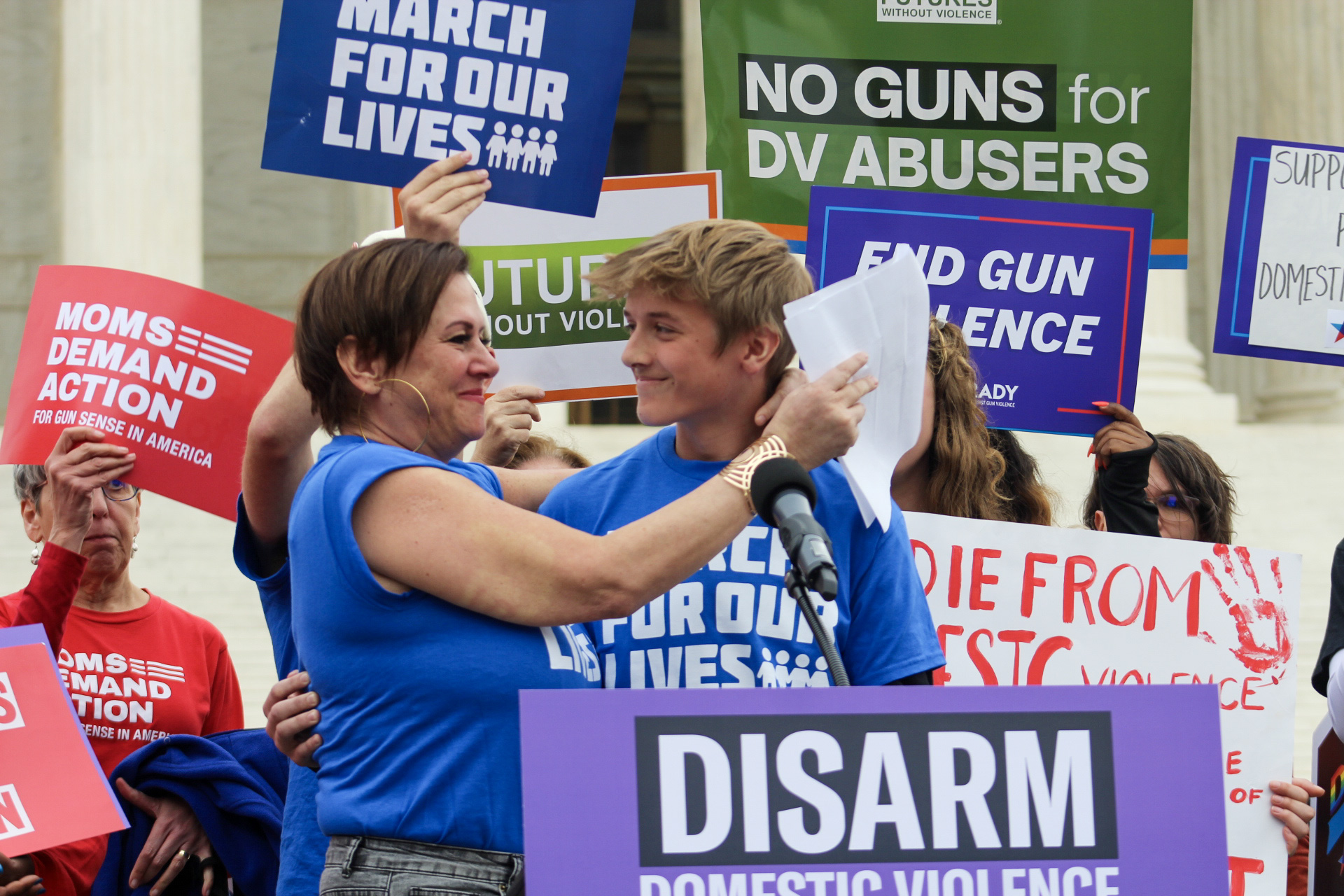
Have a story you want to share?
